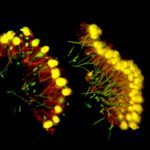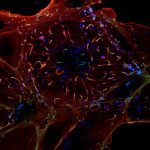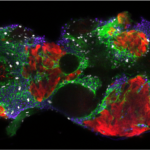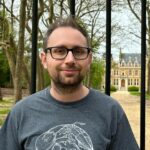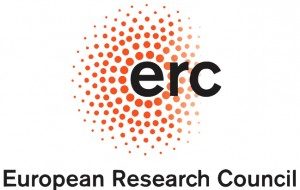Thibaut Brunet, who arrived in November 2021 at Institut Pasteur as a group leader, received the European Research Council (ERC) Starting grant for his project EvoMorphoCell – From cell shape to organism shape: the cellular basis for the evolutionary origin of animal morphogenesis. He is among the 397 early-career researchers in Europe (and 53 in France) to receive this prestigious grant in 2022 that will help him start his own lab ‘Evolutionary cell biology and evolution of morphogenesis’.
Thibaut’s project revolves around a crucial question for animal evolution: how did individual cells first learn to organize and give their distinctive shape to multicellular organisms? The first animal precursors going though these steps were likely to be microscopic, thus leaving no fossils to analyze. Thibaut Brunet turns then to choanoflagellates, the closest living relatives of animals. These eukaryotes living in the oceans exhibit both unicellular and multicellular behaviors and represent a unique model to study evolutionary developmental biology, especially since new genetic tools have been recently developed for their study.
How do choanoflagellate cells control their shape? In particular, how do they generate the “collar complex”, a ring of microvilli surrounding the flagellum that confers them an immediately recognizable appearance? What mechanisms are involved in the organization of choanoflagellate colonies and in the controlled modification of their shape? This project will focus on various -omics approaches to identify molecular mechanisms essential to these morphogenetic processes occurring both at a cellular and multicellular level.
